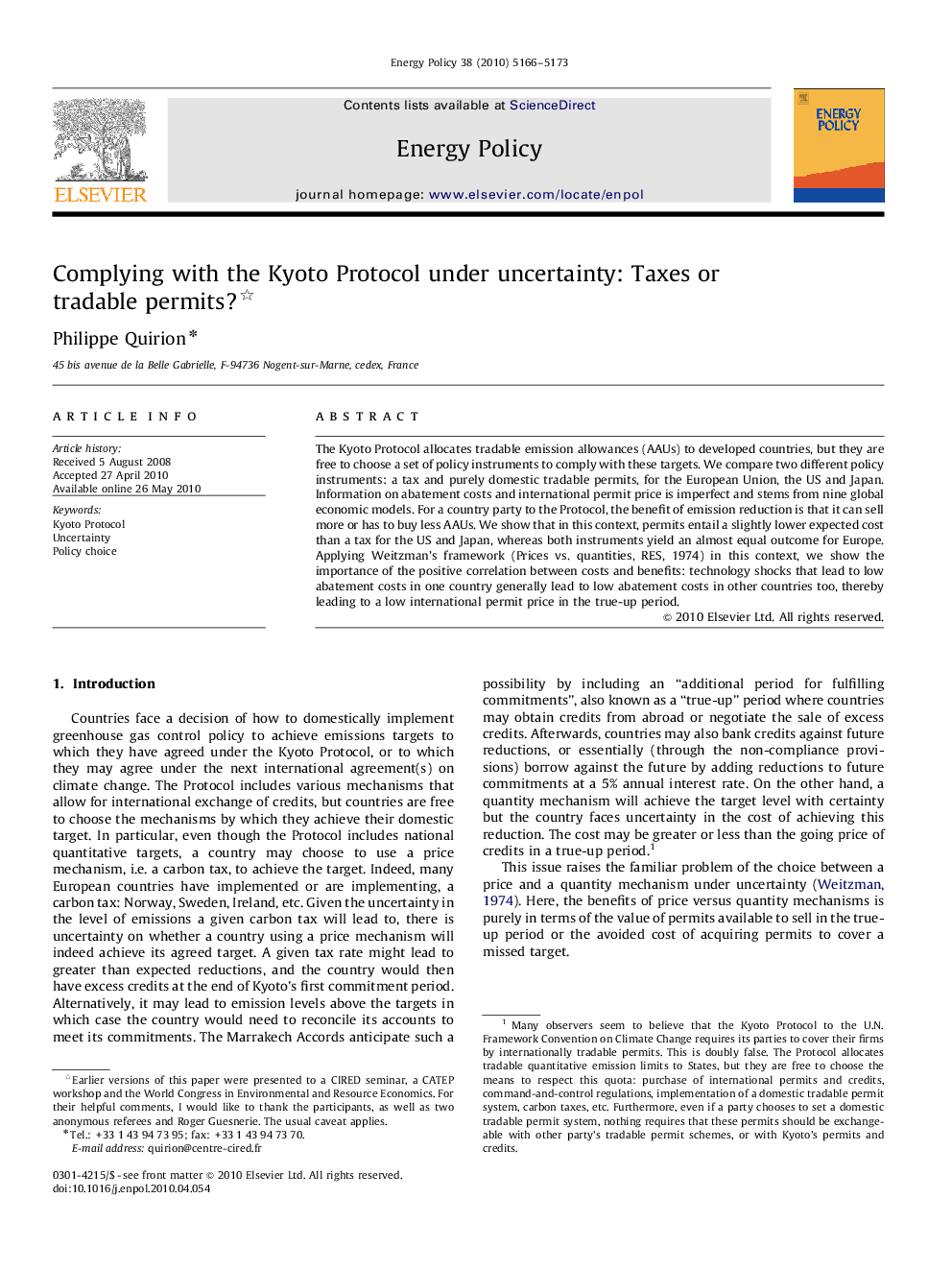| Article ID | Journal | Published Year | Pages | File Type |
|---|---|---|---|---|
| 996448 | Energy Policy | 2010 | 8 Pages |
The Kyoto Protocol allocates tradable emission allowances (AAUs) to developed countries, but they are free to choose a set of policy instruments to comply with these targets. We compare two different policy instruments: a tax and purely domestic tradable permits, for the European Union, the US and Japan. Information on abatement costs and international permit price is imperfect and stems from nine global economic models. For a country party to the Protocol, the benefit of emission reduction is that it can sell more or has to buy less AAUs. We show that in this context, permits entail a slightly lower expected cost than a tax for the US and Japan, whereas both instruments yield an almost equal outcome for Europe. Applying Weitzman’s framework (Prices vs. quantities, RES, 1974) in this context, we show the importance of the positive correlation between costs and benefits: technology shocks that lead to low abatement costs in one country generally lead to low abatement costs in other countries too, thereby leading to a low international permit price in the true-up period.
